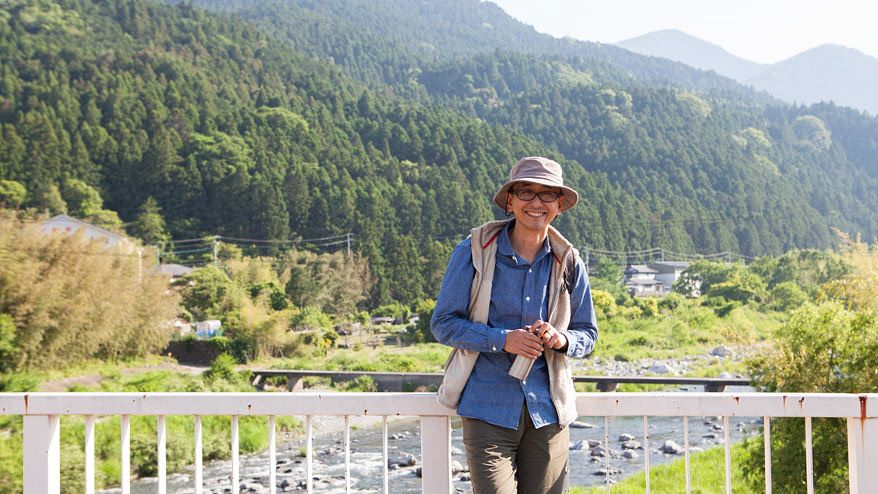今回の「めぐるモノサシ」でインタビューしたのは、西村佳哲さん。
西村さんは"つくる・書く・教える"の三種類のお仕事を主軸に、ユニークに活動されています。「働き方研究家」という肩書で、西村さんを知った方も多いかもしれません。
不思議なご縁で出会った西村さんとモノサス、現在ではさまざまな場所で関わらせて頂いています。
ある時は東京で。ある時は東北で。また、ある時は神山で。
そんな西村さんの、これまでのこと、最近のお仕事のこと、モノサスとのつながりなどについて、プロデュース部 部長・真鍋が伺ったお話を、前編・後編と二日にわたってお届けします。
前編は西村さんが考える、働くことと営むことについてお話を伺いました。
(2016年5月17日 徳島県神山町モノサスサテライトオフィスにて)
-
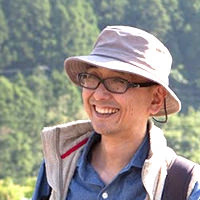
-
西村佳哲さんプロフィール:
建築分野を経て、"つくる・書く・教える"の三種類のお仕事を主軸に活動されている。"つくる" の軸はリビングワールドでのデザインのお仕事、"書く" の軸は『自分の仕事をつくる』をはじめ、働き方、暮らし方、生き方などについて書くお仕事、"教える"の軸ではインタビューのワークショップをメインに、聞き方、関わり方を教えるお仕事をされている。
-
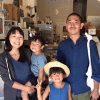
-
真鍋太一プロフィール:
モノサス プロデュース部 部長。広告の制作会社を経て、2012年7月モノサス入社。2014年に仕事で西村さんと再会し、その3月に偶然、西村夫妻と時期を同じく徳島県神山町に移住。東京と徳島の2拠点での活動を開始する。社会とつながり「暮らすように働く」という企業の価値をつくるべく、家族を実験台に検証中。2016年4月より、神山町と西村さんも所属する「神山つなぐ公社」が共同で立ち上げた、「㈱フードハブ・プロジェクト」の支配人(COO)も務める。
最近、「働き方研究家」って言ってませんよね?
真鍋
今回のインタビュー、一応ちょっと緊張してます(笑)。
西村さん(以下:西村)
はい、もう気軽にやりましょ(笑)。
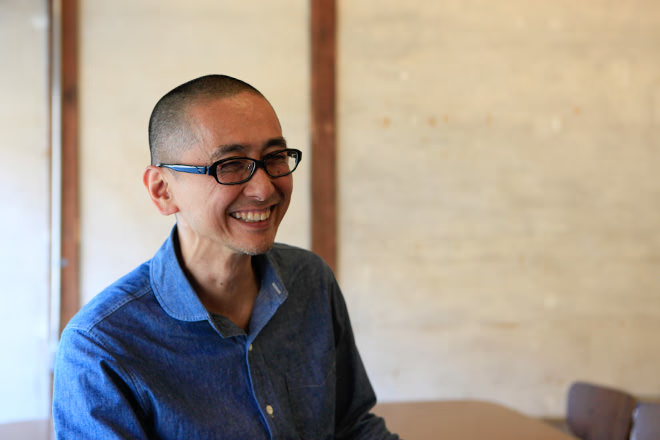
真鍋
何聞こうかと考えてたんですが、いきなりこんな質問。
最近、「働き方研究家」ってあんまり言ってませんよね(笑)?
西村
あんまり言わないですね(笑)。
真鍋
それって理由ってあります?
西村
んー、もっともらしい理由としては、働き方を変えたところで、さして救われないなっていう気持ちが強くなってきたことですね。
まぁ昔は働き方に関心があったわけですよ。
特に20代中盤から30代中盤の10年間くらい。
その頃ってミーティングのやり方ひとつにしても、グッドミーティングの方法やチームビルディングの方法を知らなくて、もっと良いやり方があるはずだって思ってたから、それを皆に聞いて回りたかったんですよね。
だから、AXISに連載してたようなこともやってたわけで。
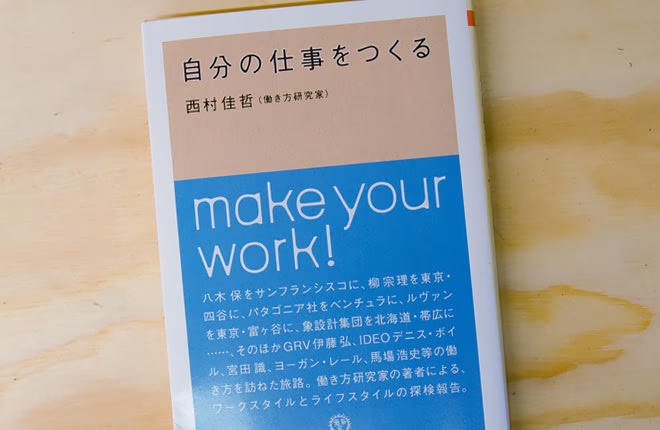
『自分の仕事をつくる』(ちくま文庫 2009年初刊)2003年晶文社より刊行されたものを、文庫化。様々な人に働き方をインタビューしていく「AXIS」での連載『Let’s work』(1995年〜1997年)もまとまっている
デザインの進め方からミーティングの持ち方、情報共有の仕方、オフィスのレイアウトを組む方法までなんでも聞いていきました。
例えば、島型対向レイアウトみたいなものが、何で良いのかということもすごい勉強になったし。
簡単に言うと、あれって新人が毎年入ってくるような会社には向いてるんです。
空いてる席に新人がドロップインしてきて、皆も新人が見えて、新人も皆のことが見えて。
そんでもって、ちょっと離れた所に部長がいて、叱られてるのも皆に見えるっていう。
教育しやすい環境なんですよね。
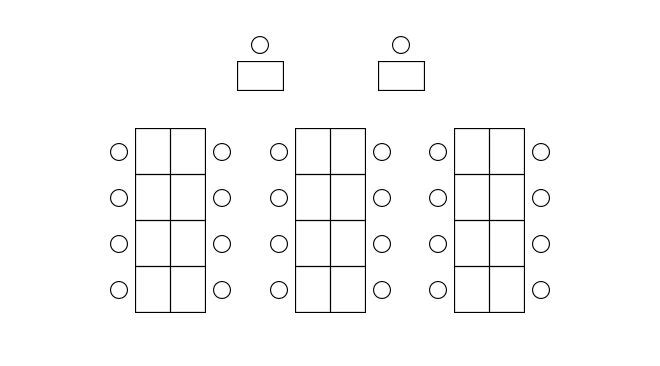
島型レイアウト
でも、会社が成熟期、もしくは一度スクラップ&ビルドしようという時には、あのレイアウトは向いてないんだよね。
で、日本の企業のほとんどはそういう所でも8人掛けの配置にしてるんだけど、例えばユニクロみたいなところは4人掛けとかにしていて。
その理由ってなんだか分かる?
真鍋
あー、角になってるのか。
西村
そう。全員が角になるから、どこでも小さなミニ打ち合わせができる。
と、まあそういうのをね、ことごとくパクパクパクって吸収して(笑)。
真鍋
(笑)。
働き方を変えても、何も変わらない
西村
そういうことが、すごい勉強になったんですよね。
でもさ、それはすごい関心があったし、今も良い働き方とか賢いやり方、効果的なやり方とかも関心があるけど、それで作ってるものがしょうもなかったらあまり意味がないというか。
どんなに働き方が改革されて、どんなに子育てと仕事が両立しやすくて、どんなにクリエイティブなミーティングが出来ていたとしても、「これをつづけてゆけば貧富の差は広がる一方だよね」とか、「やればやるほど世界がしょうもなくなってゆくだけだな」とか、「いま本当にこの仕事が必要か?」と考えてしまうようなことだったら、救われないと思うんですよ。
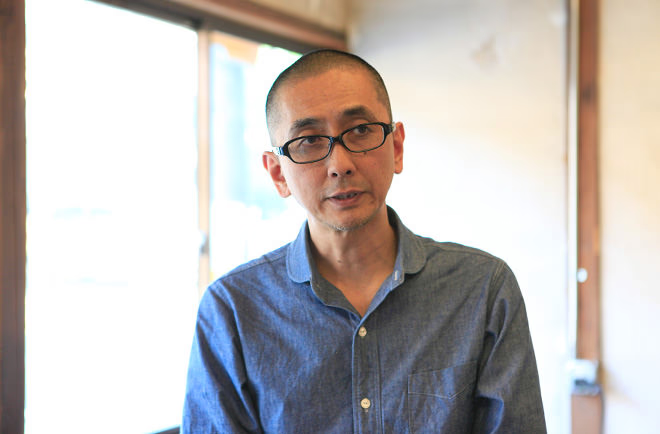
真鍋
そこに意味合いがなければ、働き方を変えても、何も変わらない。
西村
うん。だから、なんだろう。
デザインとかファシリテーションの話と同じなんだよね。
デザインもファシリテーションも技術としてあっても、ただの力なだけで。
それを使って、例えば皆を「戦争しかない」っていう方向に持っていくこともできるし、逆に皆が扱いに困ってることについて、話し合ったり関わり合えるようにすることもできる。
要は、デザインやファシリテーションそのものに善悪はないんだよね。
それは包丁自体に善悪がないのと同じで(笑)。
それで何をするの? それでどういう社会を作るの? っていう。
そこだよなっていうのはずっと思っていて。
だから今必要なのは、「これからはこれだ」っていう仕事を作ること。
真鍋
なるほど。
西村
で、その時におのずと働き方も一緒に変わっていくと思う。
そんな感じで、働き方にばかりそんな関心を持っていてもしょうがないよね、っていうのがあるんですね。
「働く」というより、「営む」
西村
あともうひとつ。
確かに仕事って人生のすごく大きなウェイトを占めてるんだけれども、働いてるだけが自分じゃないと思うんですよ。暮らしてもいるわけで。
どんな風に食べているだとか、どんな風に子どもと接しているだとか、どんな風に奥さんと一緒に時間を重ねているかだとか。
色んなことがあっての自分であってさ。
「ワークライフバランス」って言葉が苦手なんだよね。
真鍋
(笑)。
西村
いろんな意味で、仕事がきつすぎるとだんだんと自己疎外が進んで、統合を失調してしまう。そこで統合しようとすると、逆に分裂しちゃう。
だから、仕事以外のプライベートを充実させてバランスを取っていきましょうよ、っていう話として見てるのね。
でも本当は、ワークもライフも統合されてるのが幸せな状態だと思うし、自分みたいな自営業だと、「仕事だからやってる」とか「ここはちょっと力抜いて」とか、そういうこと言ってられないんですよ(笑)。
真鍋
言ってられないですね(笑)。
西村
ワークもライフもバランスもあったもんじゃない。
でね、象設計集団っていう建築チームがいてさ。
真鍋
北海道の?
西村
北海道です。
昔(1995年冬)その人たちに、AXISの連載でインタビューに行ってるのよ。
で、「行って良いですか?」ってアポ取ったら、「来ないで欲しい」って言われたんだよね(笑)。「俺たちそういう取材とか答えたくないんだよね」みたいな。
でも、「来ちゃったらしょうがないけど」とか言うわけですよ(笑)。
え、行っても良いのか? どっちだ!? みたいな(笑)。
真鍋
しっかり行ってましたよね(笑)。
西村
とまあ、そんな感じですごい微妙なニュアンスで返してきてさ。
行ったらまあちゃんといろいろ聞かしてくれたわけ。
その冒頭で、
「今日は象の皆さんの働き方について聞きに来ました」と言ったら、
「働き方⋯」って返ってきて。「働き方っていうより、営んでる感じなんだよね」って言われたんです。
そん時にさ、すごい大事なことを聞いた気がして。
けどまあ聞こえないふりをして、「で。働き方なんですけど」って続けてさ(笑)。
真鍋
続けたんですね(笑)。
西村
そのまま働き方の話を聞いた(笑)。
でも、自分の中で、「営んでる感じ」という言葉がずっと残っていて。
で、後々になってその「営む」っていう言葉は、仕事も暮らしも、両方含まれる良い言葉だな。統合されてるなって。
今、自分はどちらかというとそっちの方に関心があるんだよね。
どんな風に営む?
西村
働き方のことを考えていくと、当然生き方の話になるんですよ。
そうなってくると、もう仕事だとか暮らしだとか分離できなくて。
さらによりよく生きていきたいけれど、じゃあどういうふうにやっていったら良いのかっていう。
経済のことと、それからこれからのこの国のありようだとか。
皆、今よく分からなくなってきてるんじゃないか、と思っていて。
で、そうすると、「これからどんな風に営んでいけばいいんだろう?」っていうのが、一番全部を表現できる言葉だなあって。
でも「営み方研究家」と言ってもわけ分かんないから(笑)。
営み方という言葉もそんなに積極的には使わず、ただ「働き方」っていう言葉を手放したって感じなんですよね。
真鍋
前に、80年代は遊び方の時代があって、その後に働き方の時代、で、今は営み方の時代になりつつある、要は統合されているみたいな話を西村さんから聞いた時に結構腑に落ちて。それはなんかすごいなるほど、と思ったんですよね。
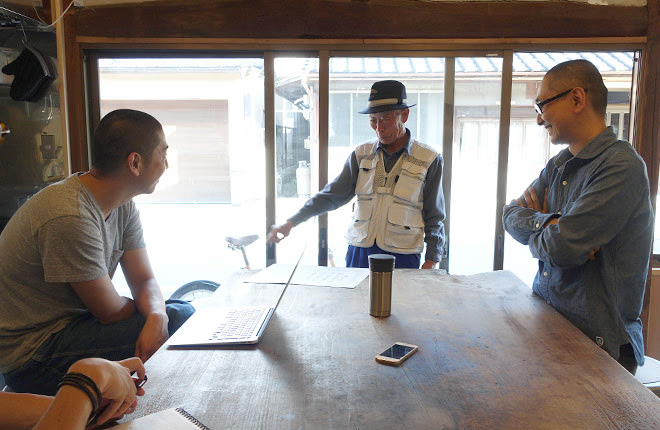
対談途中、突然ご近所の方が会話に参加。ゲートボールの話がはじまりました。
ライフステージの作り方
真鍋
「働き方」という言葉を手放して、「営み方」というものに関心を強く持ち始めた。西村さんが神山に来た経緯っていうのも、そのへんが関係してるんですか?
西村
いや、それは理由にはなってないんだけど。
でも、今自分が関心があるものと、自分ができること。
それらが今の環境では全部同時に動いてるかな。
神山には色んな理由が重なってきたんだけど、本当に何かを意図してきたとかは全然ないんだよね。
まあ自分たちがやってきたことが元々ポータブルだから。
ライティングにしてもそうだし、出張ベースの仕事も多かったからそれだったらどこから行ったって良いわけだし。
だから、最初は「じゃあここで何をしようかな」みたいな感じだった。
でも、ある頃から町から相談をもらうようになって。
でね、会社を辞めた時ともまあ似てるなと思って。
とにかく1回これ以上いちゃ駄目だって思って、エイっとその環境から出るわけ。
そうすると、その後に話しかけてくれる人たちがいて、声がかかって、それを一生懸命やってると次のライフステージができてくる、みたいな。
真鍋
良い話だ~(笑)。
西村
いやでもね、人によっては自分の人生を自分で設計して作っていく人もいると思うんですよ。例えばイチローとか?
意志を持って積み上げていく。
自分は完全にそうじゃなくて、1回逃げ出して、その後に結果的にできていくっていう。
しかも自分からアプローチするんじゃなくて、他人が来てくれるっていうそういう感じですね。
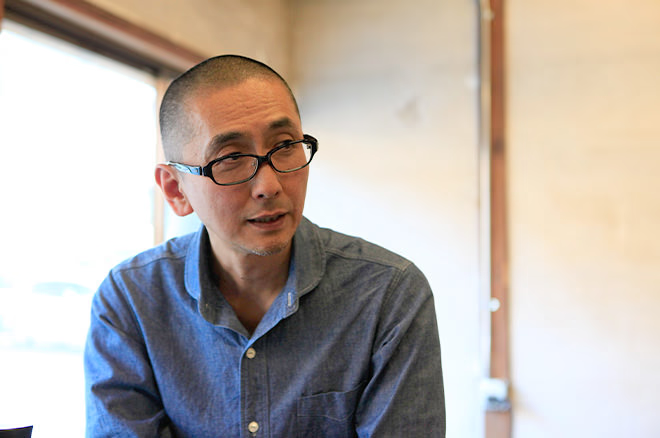
真鍋
で、神山もその動きの一つだったと。
西村
でも、その時に自分がそれまで「これ、いつどうやって使うんだろう?」と思っていたトピックスやカードが、なんか使えるんですよね。
ある時に読んでいたものとか、ずーっと心の奥底にしまってあって、仕事には関係してこなかった事々が、全部使えるようになってゆくというか。
今そういう状態ですね。
真鍋
なるほど。
じゃあ今は結構良い状態ですか?
西村
良いかどうか分からないけど、フル稼働かな。
後編へ続きます(6/24公開)
